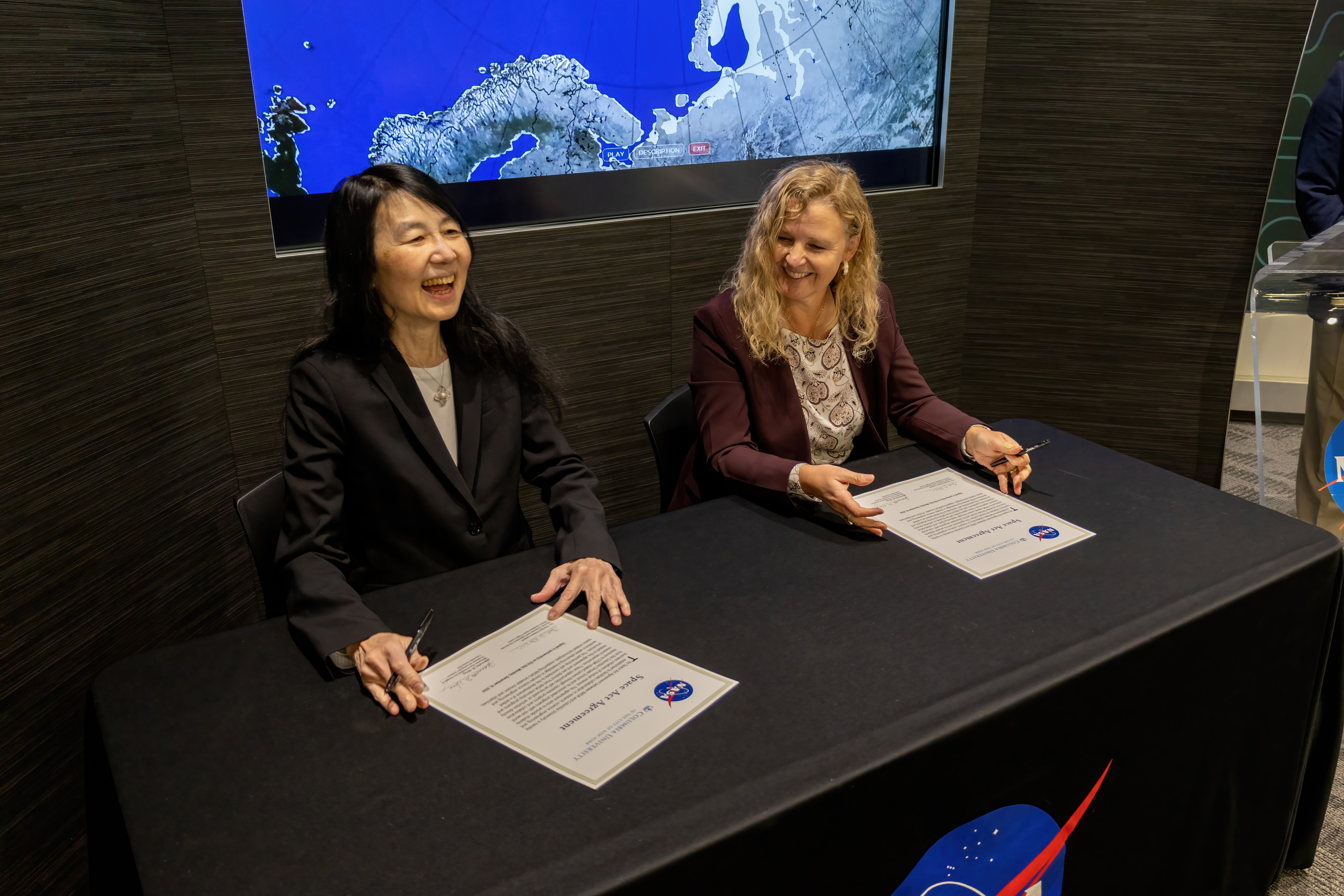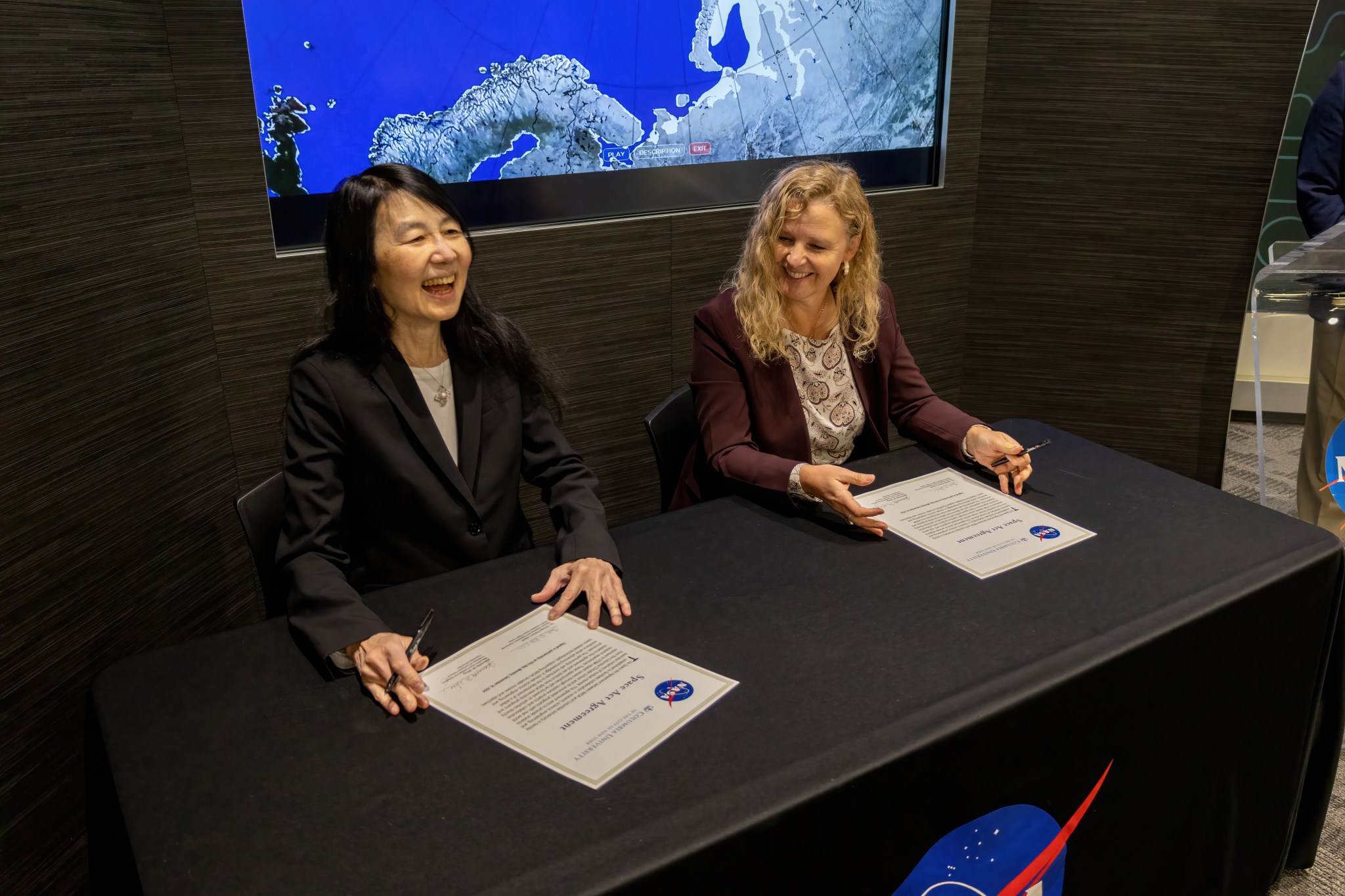NASA, CU Enact Collaborative Space Act Agreement
NASA’s Goddard Space Flight Center in Greenbelt, Maryland, and Columbia University in New York, New York, enacted a collaborative Space Act Agreement to advance research and education opportunities during a signing ceremony Monday, Dec. 16, at Goddard. Presiding over the ceremony were Dr. Christa Peters-Lidard, director of Goddard’s Sciences and Exploration directorate, and Dr Jeannette […]

NASA’s Goddard Space Flight Center in Greenbelt, Maryland, and Columbia University in New York, New York, enacted a collaborative Space Act Agreement to advance research and education opportunities during a signing ceremony Monday, Dec. 16, at Goddard.
Presiding over the ceremony were Dr. Christa Peters-Lidard, director of Goddard’s Sciences and Exploration directorate, and Dr Jeannette Wing, executive vice president for research and professor of computer science at Columbia University.
Columbia University has been a trusted partner for many years and has a long history of interactions with Goddard Space Flight Center. Notably, the Goddard Institute for Space Studies (GISS) is located at Columbia University serving as a laboratory in Goddard’s Earth Sciences Division and is affiliated with the Columbia Climate School and School of Engineering and Applied Science.
The agreement expands NASA’s CU partnership to Goddard’s Greenbelt campus and will be centered around collaborative research, education, technology development, workforce development, science and engineering exchanges, applied science, commercial as well as nonprofit research along with technology infusion.
Areas of mutual interest include but are not limited to: artificial intelligence, foundation models, machine learning, and data science; climate sustainability, justice, adaptation, and resilience; materials and sensors; quantum sensing and computing; Earth science, planetary science, heliophysics, physics and astrophysics.








